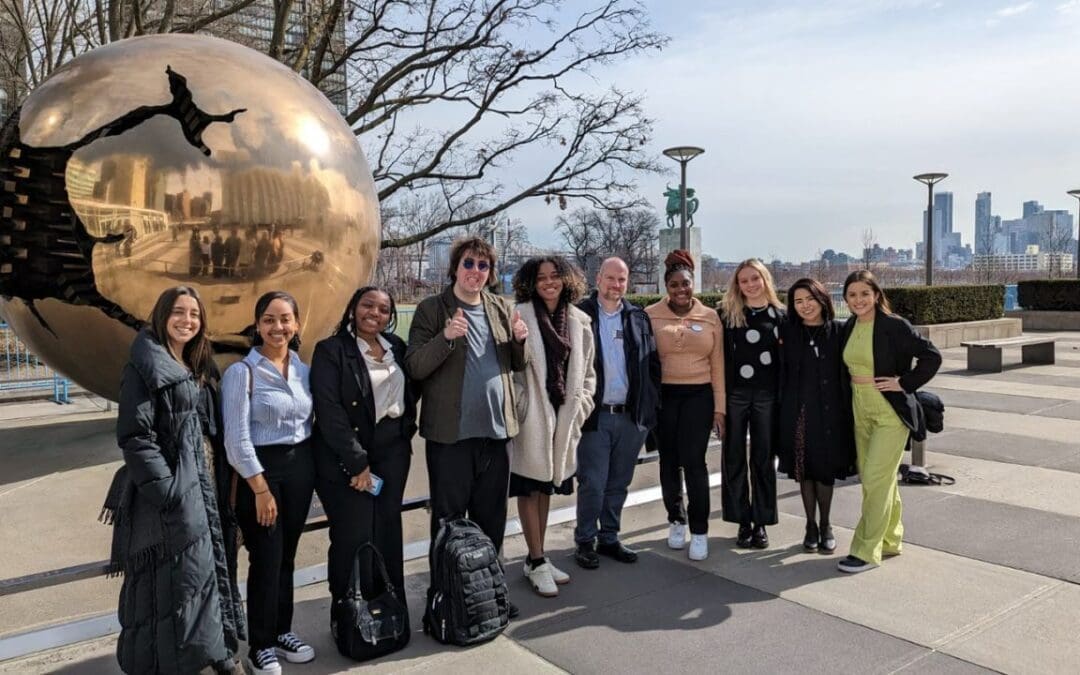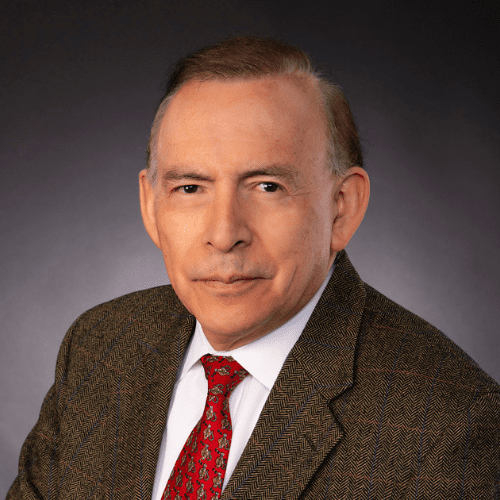
If Youth Is The Future, Why Don’t We Have A Say About It?
Being invited to the first Global Future Forum in New York City from March 20-22 was something I never imagined when I arrived in the United States seven months ago. My name is Marina Jiménez, and I am a fourth-year Law and Political student from Universidad Carlos III de Madrid, Spain. Last September, I came to the United States to study for a year at Northeastern University (Boston) and, I was given an opportunity to be sponsored by Citizens for Global Solutions to not just to be part of the first Global Future Forum but to present my research paper, “Open Door opportunities that leave many young people on the doorstep” about the exploitative unpaid internships in the United Nations (UN) at the Youth Pavilion..
But first things first. What was the Global Futures Forum? The Global Futures Forum (GFF) was a two-day event celebrated in New York to conclude several months of work on the “People’s Pact for the Future”, a document that encapsulates several proposals made by civil society about the UN’s future and the reforms that must be made, as an attempt to not only be heard but be presented at the Summit of the Future in 2024. During the previous weeks, Coalition For the UN We Need (C4UN) and the Stimson Center– the coalition that made it all possible; coordinated different E-consultations related to seven tracks: Peace and Security, Human Rights and Participation, UN and Global Governance and Innovation, Global Economic and Financial Architecture, Environmental Governance, Development and Digital Compact. By doing so, people all around the world, all ages and all backgrounds got the chance to bring to the table their concerns and suggestions for a better future. Undoubtedly, GFF represents a significant milestone in the way civil society supports intergovernmental processes. Empowering civil society in international decision-making is the first step towards a stronger, more networked, and inclusive multilateral UN system.
To this effect and to ensure GFF was inclusive itself, it included an entirely youth-led and youth-focused forum, promoting the key role of youth in the monitoring, review and the implementation of Our Common Agenda and the achievement of the Sustainable Development Goals (SDGs). Needless to say that youth representation is a critical stakeholder that is almost never invited to the negotiating table, so being invited and having a voice is an important part of civil society has been an important move. While historically, the lack of young people in high decision-making processes is common, young have the power and full knowledge of our concerns and ambitions, and we will no longer sit on the sidelines. We demand to be part of the conversation and the solutions that concern our futures moving forward. Listening to the voice of youth is a vital part of understanding our society as a whole.
Youth have been undervalued and many in power tend to think that we are “too young and inexperienced” to be a relevant player on the field. But we are not. We are nearly half of the world’s population, and we are more educated than ever. We do not want to be just consulted. We are tired of being asked to share our opinions and solutions without seeing any real change. We want to see our proposals being taken seriously, to the same extent as those of the rest of the involved stakeholders. We want to have a say in our future. We want to get on Board.
That is why I am pleased that the “People’s Pact for the Future” that we drafted will reach the hands of the UN Secretary-General, António Guterres, and the negotiating parties at the Summit for the Future 2024. It is the most useful way to get our claims to where the decisions that affect our day-to-day lives are made. While not every recommendation will materialize from the conference, we must continue to raise our voices at all levels of power, what we experienced could be a turning point in the way the world thinks about and treats youth. It remains to be seen whether they seize the opportunity or miss the boat again.

























